Selling on Amazon is a great way to build a base of loyal customers, but success on the platform is far from easy. With millions of sellers listing seemingly countless products every day, standing out in the crowd can be a challenge. As a result, it’s essential to explore and implement the right resources to get ahead of the competition. These are the twelve best Amazon seller tools to consider when setting up a sales storefront or if you’re on the hunt for sales success.
-
- Trellis
- Sellercloud
- Viral Launch
- Seller Board
- AMZScout PRO
- SPS Commerce
- Promerit
- Channel Advisor
- Helium 10
- Jungle Scout
- Pacvue
- Zonbase
The 12 best Amazon seller software tools
1. Trellis
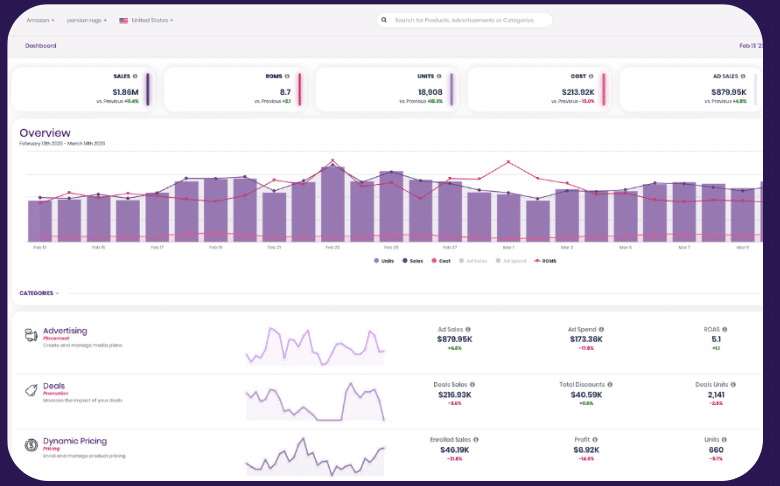
Few resources are better than Trellis when it comes to selling on Amazon. Dynamic, scalable, and user-friendly, our platform makes optimizing sales and achieving growth goals easy and actionable. All options typical to comprehensive platforms are available, including PPC automation tools, listing optimization features, dynamic pricing, and promotional forecasting. In addition, Trellis offers analytics tools to better understand your customers and merchandising by collecting and segmenting 4P data, analyzing the data in context, and activating that data towards your goals.
In addition, Amazon sellers can see big improvements in no time, including:
-
- 4% improvement in conversion rates,
-
- 20% increase in the return on advertising spend,
-
- 10% increase in promotion performance, and
-
- 3% improvement in profit margin.
Pros
-
- Effective tool for augmenting the key pillars of selling on Amazon including pricing, advertising, and content support.
-
- Proven track record of success with sellers seeing improvements right away.
-
- Easily scalable; Trellis can grow with you as your business needs change.
-
- Ideal for growing brands, established brands, and agencies.
-
- Free demo booking available.
Cons
-
- Robust tools that may be more than what a beginner needs.
Key features
-
- Expert advertising placement,
-
- Product content optimization,
-
- Cutting-edge software to maximize deals,
-
- Automate pricing strategies,
2. Sellercloud
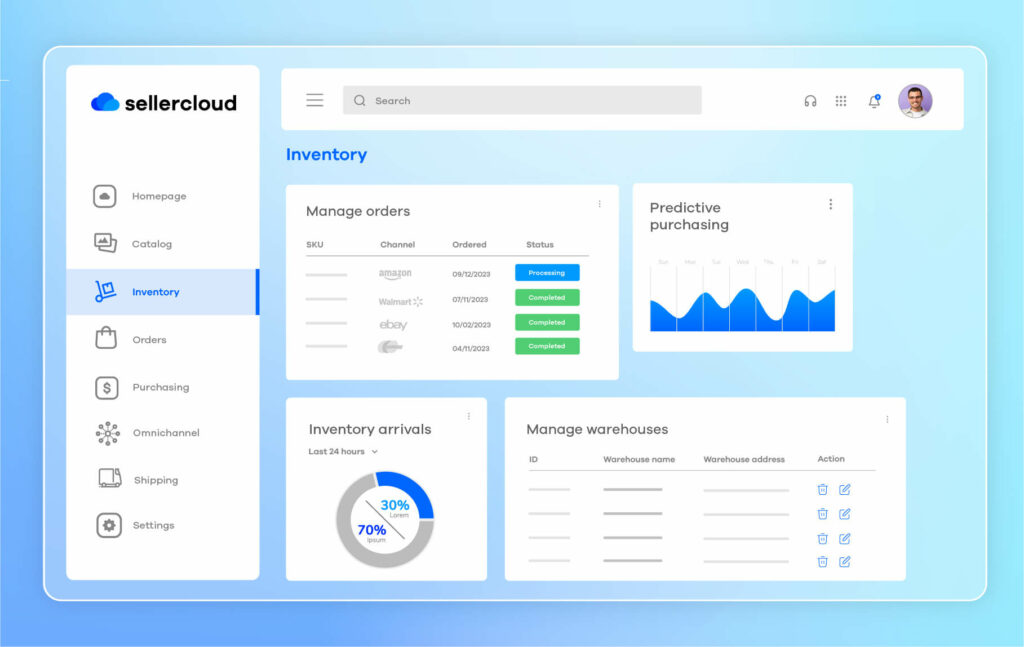
As an Amazon Seller Central Partner with a focus on order management and fulfillment, Sellercloud is positioned to help brands succeed on Amazon. Boasting the ability to maximize both presence and selling power, this suite of tools includes many of the most desirable resources, including organizing details in a single interface, syncing inventory and orders, and promising a seamless transition between tools.
Sellercloud can also be an excellent resource for FBA sellers. With the consolidated shipments function, sellers can merge products at a single fulfillment center while also maintaining control over the ordering process. Amazon Buy Shipping provides bulk rates, including discounts across all major carriers—a huge plus for those moving a lot of products.
Pros
-
- Wide range of tools that target all key aspects of sales, from fulfillment to inventory management.
-
- One integrated dashboard for ease of use.
-
- Easy transition of existing Amazon listings into Sellercloud’s interface.
Cons
-
- Large focus on FBA services, which isn’t overly helpful for FBM sellers.
-
- Limited use for those who need assistance that goes beyond fulfillment.
Key features
-
- Multi Channel fulfillment control for worldwide sales,
-
- Manage feedback, product requests, cancellation and refunds, and profit and loss statements,
-
- Single interface management.
3. Viral Launch
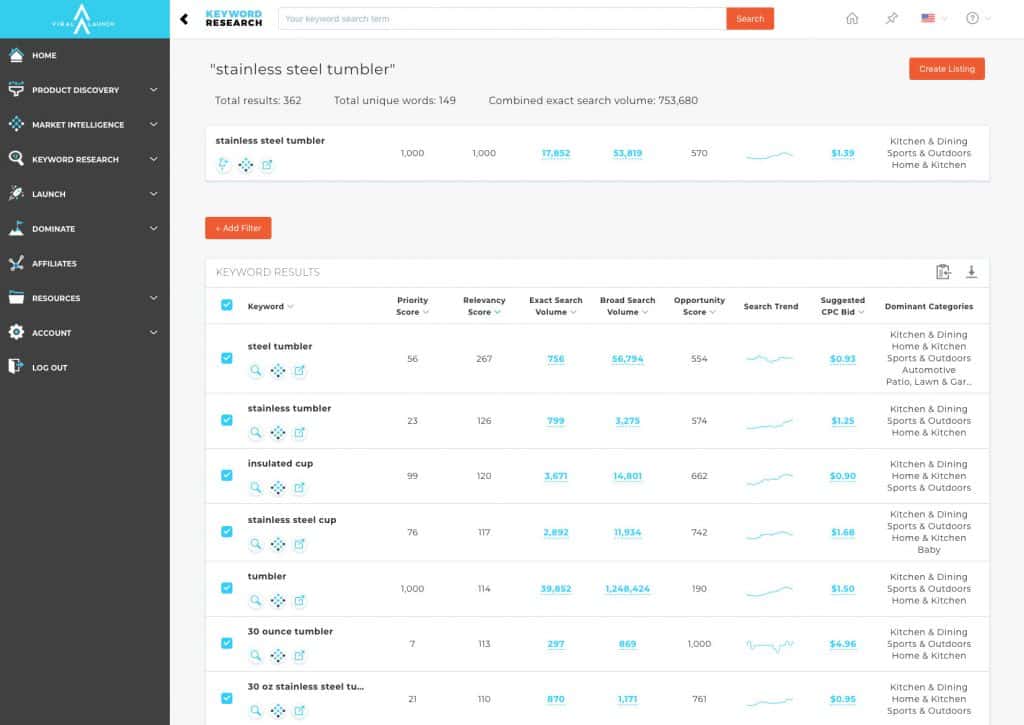
Viral Launch is all about positioning products for success—something many Amazon sellers prioritize when looking for helpful tools. The available resources are robust and comprehensive, covering a huge range of necessary services across areas like listing and keyword research, competitor analysis, and product launch strategies.
In addition to core functions that manage how products are listed and positioned, Viral Launch can also help with marketing campaigns, like PPC automation and optimization tools, managing product research, and strategies like split testing to see what marketing approaches work best.
Pros
-
- All-in-one seller software in one easy interface.
-
- Services in virtually every aspect of Amazon seller needs.
-
- Simple subscription model that includes almost all features without additional fees.
Cons
-
- Because offerings are so broad, there’s no singular specialized area of expertise.
-
- Limitations on the free version.
Key features
-
- Market, keyword, and competitor intelligence,
-
- Listing builder tools,
-
- Automated marketing tools, like PPC optimization and keyword analysis,
-
- Accurate, relevant, and detailed data processing.
4. Sellerboard
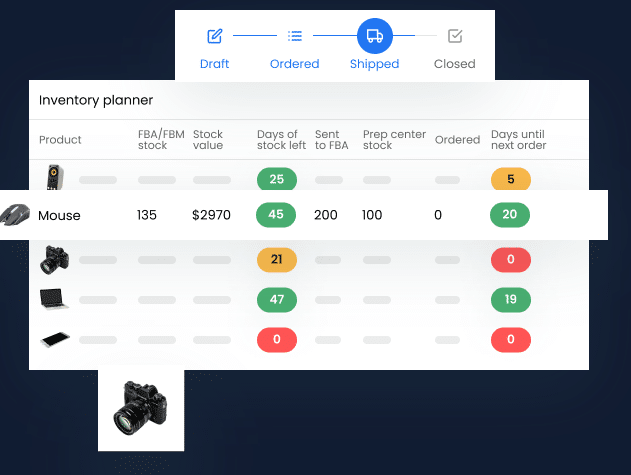
As the name implies, Sellerboard is a one-stop board for Amazon profit analytics. While tools are available in many different areas, where Sellerboard shines is the numbers side of sales, helping sellers keep an eye on the expenses associated with their operations.
Like it or not, understanding numbers and stats drives the success of every business, whether on Amazon or not. Sellerboard tracks the elements that impact the net results of sales, like Amazon fees, impression and conversion rates, the cost of returns, and indirect selling costs.
Pros
-
- Comprehensive numbers management for all areas of sales, including profit and loss and return stats.
-
- Easy exports into Excel for flexible data use.
-
- One-month free trial.
Cons
-
- Due to the focus on profit analytics, Sellerboard can’t cover all of the services most sellers will need to operate a successful eCommerce business.
Key features
-
- Account for direct and indirect spending costs,
-
- Manage cost of goods sold across products and periods,
-
- Understand and manage returns, both trends and costs,
-
- Data exports for integration into accounting software.
5. AMZScout PRO
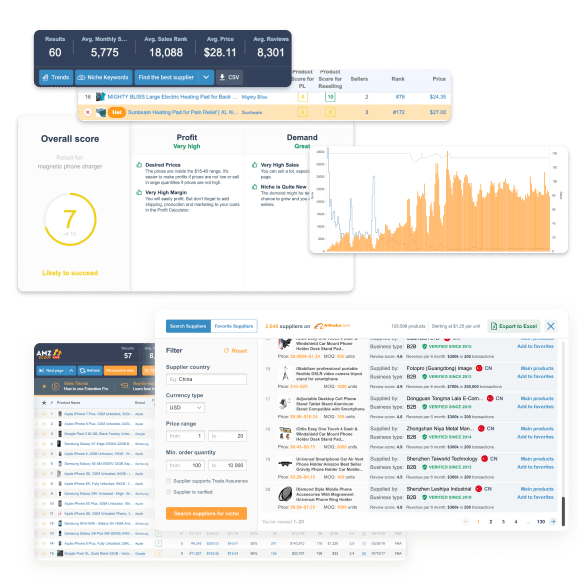
For those searching for fast and flexible resources, the AMZScout PRO seller extension integrates into your browser and can help you with the main priorities of selling on Amazon. As an extension that works directly with your seller account, AMZScout PRO is easy to set up and even easier to use.
This platform has three primary priorities:
-
- Helping sellers to pick profitable products to sell based on niche demand and competition,
-
- Locating local and global suppliers, and
-
- Competitor analysis.
When you’re looking to expand your business and pick products that will succeed, this software can help you maximize opportunities.
Pros
-
- Fast, flexible, and easy to set up browser extension.
-
- Integrates easily with the Amazon interface.
-
- Robust reporting for an extension.
Cons
-
- As an extension and not a standalone software, functionality can be limited.
-
- Largely focused on maximizing product potential without more comprehensive coverage.
-
- Relatively high cost for a Chrome extension.
Key features
-
- Niche scores and FBA estimate costs to evaluate a product’s potential,
-
- Find local and global suppliers,
-
- Track sales, SEO rankings, pricing, keyword use, and stock levels for users and competitors.
6. SPS Commerce
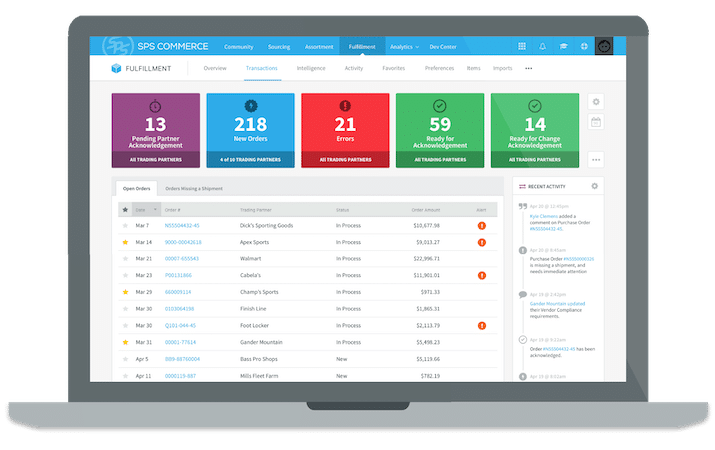
As a leader in the specialized fulfillment space, SPS Commerce boasts the ability to solve even the most complex supply chain issues. With retail solutions that provide automated data exchanges about inventory, products, orders, and shipments, sellers can streamline operations for all elements of the fulfillment process.
While the supply chain resources can be too complex for small or growing businesses, those with extensive needs will find few options better than SPS. From collecting retail data to sharing product information and finding EDI systems and sales partners, those who need a reliable and stable source of supply chain support can find everything they need with this platform.
Pros
-
- Extensive supply chain resources that can meet even multi-faceted needs.
-
- Access to new resources and creative solutions for supply chain pain points.
-
- Specialized services rather than broad solutions.
Cons
-
- Very narrow focus means that these solutions won’t apply to simpler business models.
Key features
-
- Find EDI solutions,
-
- Access and leverage retail data,
-
- Improve vendor compliance,
-
- Use 3PL resources to automate customer communications.
7. ProMerit
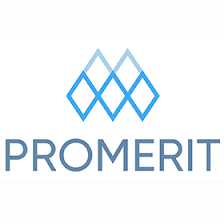
With a mission to simplify a complex market, ProMerit is prepared to be your partner in all aspects of selling on Amazon. Boasting 45% first-year growth among partner companies and a people-focused approach that has kept 95% of partnerships active for over eight years, this platform is an essential one to consider.
ProMerit believes in people-focused solutions, which means more of a white-glove approach to supporting Amazon sales. Users can choose a guided resource or give full control to ProMerit and take a hands-off approach to management. As a part of these managed models, brands are able to focus on the areas that mean the most to them, including content creation, advertising and marketing, accounting and tax obligations, fulfillment, and performance reporting.
Pros
-
- Person-focused approach, pairing companies with in-house experts, including former Amazon employees.
-
- Partnership perspective rather than providing automated tools.
-
- Wide focus covering most of what businesses will need.
Cons
-
- A personalized approach won’t be right for everyone; many companies want to run their operations their own way with full access to seller tools.
Key features
-
- Account management and partnership solutions,
-
- Content, order, fulfillment, and marketing options,
-
- Access to experts in the field to help guide business decisions.
8. ChannelAdvisor (Rithum)
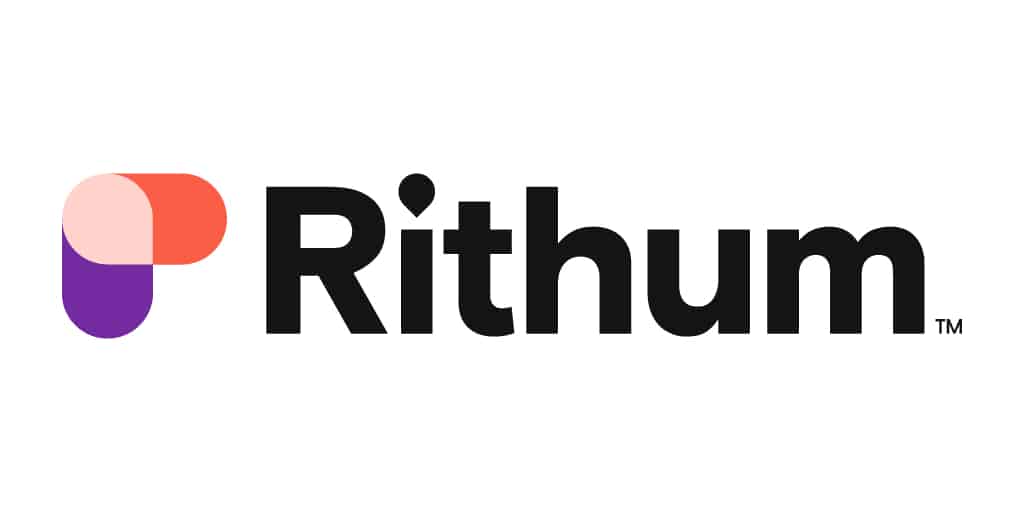
When scaling is a priority, this platform is one to look into. Promising a way to supercharge sales via streamlining critical tasks and fine-tuning performance, sellers can find the basics they need to succeed with this all-in-one tool.
This resource specializes in a five-step process: connecting with the best marketplaces, marketing to ideal consumers, selling products and creating loyal customers, fulfilling orders in a timely manner, and optimizing overall sales. This end-to-end process supports sellers from start to finish, regardless of pain points or business objectives. While previously known as ChannelAdvisor, this service has recently rebranded as Rithum, which also included an integration with CommerceHub.
Pros
-
- Full ecosystem referred to as “connect, market, sell, fulfill, optimize.”
-
- Managed and unmanaged solutions.
-
- Opportunities for both retailers and brands.
Cons
-
- High costs for recently integrated services.
Key features
-
- End-to-end sales support,
-
- Connected eCommerce solutions from the first point of contact to product fulfillment,
-
- Access to many marketplaces, including Amazon and beyond.
9. Helium 10
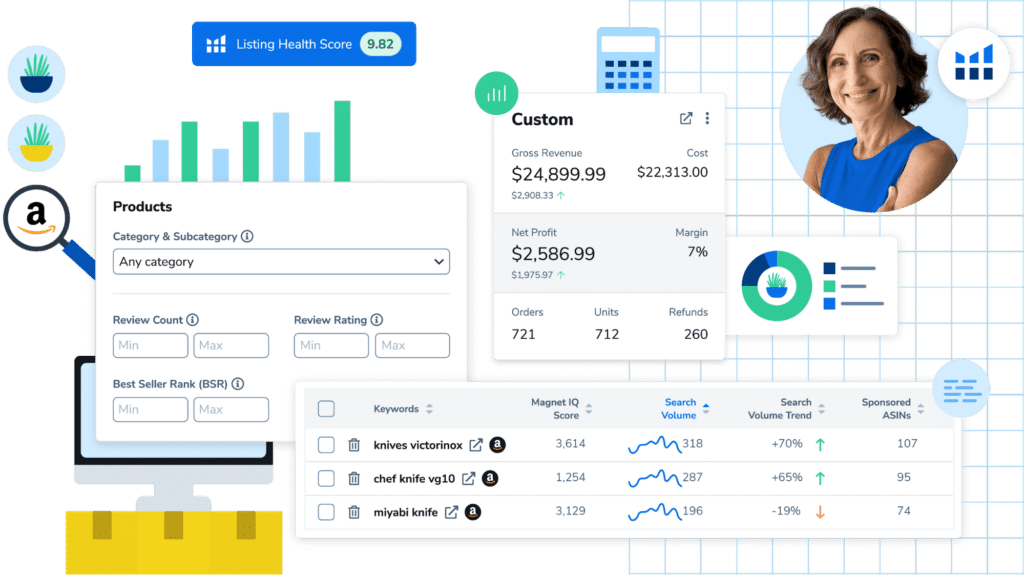
Helium 10 is a comprehensive, cohesive solution for Amazon FBA sellers as well as those selling on Walmart marketplace. With over 30 tools and solutions, users can streamline their operations and focus on pain points in need of improvement. Covering all of the key points of concentration, like product research and listing optimization, sellers have access to everything necessary to achieve their business goals and take them to the next level.
Aside from the basics offered by many comprehensive platforms, Helium 10 has some software-specific resources. These include Market Tracker 360 to help improve market visibility, Adtomic to improve PPC performance, and increased efficiencies with the customizable Insights Dashboard.
Pros
-
- Comprehensive suite of tools.
-
- Platform-specific resources to optimize pain points.
-
- Easy-to-use interface ideal for sellers at all experience levels.
Cons
-
- Free signup but limited options to try out features without a costly subscription.
Key features
-
- Proprietary platforms like Market Tracker 360, Adtomic, and Insights Dashboard,
-
- Research, operations, analytics, and marketing resources,
-
- Solutions for businesses, brands, and agencies,
10. Jungle Scout
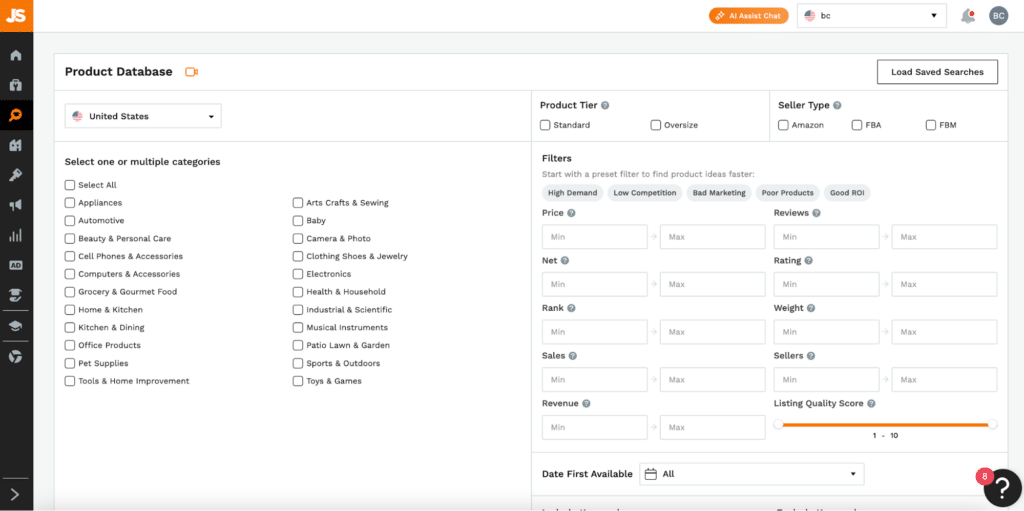
An undisputed leader in product and price research tools, Jungle Scout has been a long-time resource for sellers of all sizes. With a wide range of options to run or manage an Amazon business, including expertise in FBA sales, plenty of sellers turn to Jungle Scout for its knowledge and software.
Jungle Scout’s tools cover five key areas:
-
- Product Databases,
-
- Opportunity Finder,
-
- Chrome Add-In Extension,
-
- Category Trends, and
-
- Product Tracker tools.
This combination can meet most major needs, and when coupled with the new AI Assist services, users can create a custom experience designed to meet unique requirements. A free sales estimator is also available, providing an opportunity to explore the platform for sellers on the fence about using Jungle Scout.
Pros
-
- Services across all major areas of Amazon seller support.
-
- Free sales estimator tool to give users a chance to see what Jungle Scout can do.
-
- Integration of cutting-edge AI Assist tools.
Cons
-
- Limited free tools, forcing brands to make a purchase to take advantage of seller tools.
Key features
-
- Product and pricing research and tracking,
-
- Strategies to find opportunities to maximize sales,
-
- Category trend analysis.
11. Pacvue
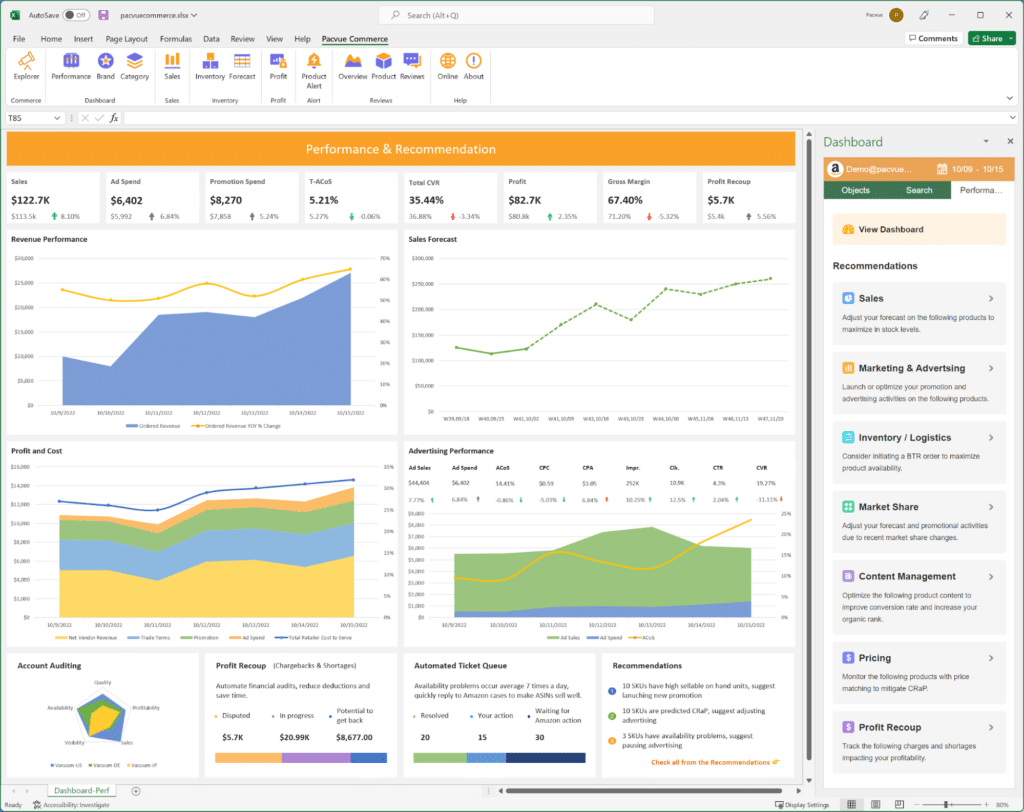
With Pacvue, every Amazon seller has the potential to maximize their eCommerce potential. By translating overarching goals into tangible business objectives, users can boost their bottom line, drive incremental sales, and grow market share. Built for growth, Pacvue can scale when you do, including access across over 90 marketplaces.
Pacvue also boasts an array of AI tools to support your brand’s goals. This includes identifying emerging marketing trends as well as automating and optimizing advertising among other functions.
Pros
-
- Robust reporting abilities.
-
- Innovative AI solutions.
-
- Marketing and advertising expertise.
Cons
-
- Clunky platform that can move slowly.
-
- More limited integrations than other similar products.
Key features
-
- Omnichannel advertising solutions,
-
- Reach to over 90 marketplaces,
-
- Brand growth and competitive tracking.
12. Zonbase
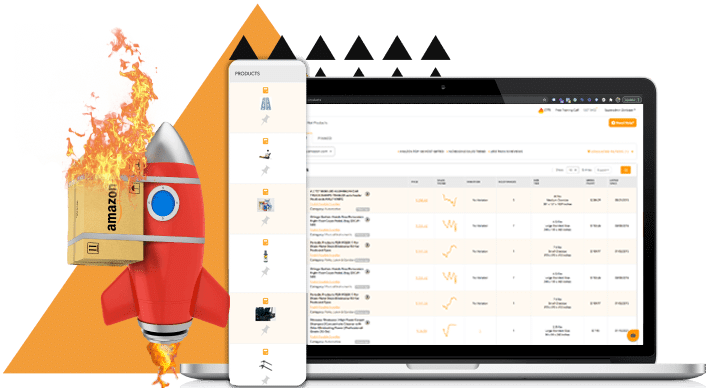
Simple, straightforward, and easy to integrate, Zonbase is a basic service with big potential. The ZonResearch tool is focused heavily on finding winning products, including analyzing the day’s hot items and what’s most likely to succeed. With a powerful Chrome extension that’s easy to work into current operations and over twenty tools to boost your business, this resource can support a wide array of business needs.
While other managed programs do exist, Zonbase considers itself a leader in mentorship by offering one-on-one support between sellers and platform experts. In addition, a free training call is available to anyone considering signing up, ensuring no platform benefit goes unexplored.
Pros
-
- One-on-one mentorship program and free training call.
-
- Simple, streamlined platform perfect for selling operations of all sizes.
-
- 20 available tools.
Cons
-
- Limited options versus other paid tools.
-
- A better tool for product research than overall sales support.
Key features
-
- ZonResearch product analysis tool,
-
- Reporting on hot products,
-
- Easy-to-use Chrome extension.
What Amazon Seller Tools Are Available?
No matter what you need to succeed on Amazon, there’s a tool out there that can help you outline your objectives and help you achieve your goals. These are some of the most popular—and the most beneficial—ones available.
Amazon PPC automation tools
With Amazon PPC automation tools, users can create automated approaches to pay-per-click ads. This can include keyword implementation and bidding strategies to take the onus off of sellers who are new to PPC advertising.
Amazon Chrome extensions
Amazon Chrome extensions can make quick work of basic functionality within the Amazon seller interface. Add-ins simplify and automate many tasks that can be cumbersome when handled manually.
Amazon keyword research tools
Analyzing internal strategies or the performance of the competition can be quick and easy with Amazon keyword research tools. From rankings to the value of investing in specific match types, you can have the information you need at the click of a button.
Amazon PPC optimization software
When you want advertising success, you need Amazon PPC optimization software. These tools can help analyze performance, dig into how the competition does things, and build strategies designed to win bids and grow your customer base.
Amazon listing optimization tools
Want a product listing that stands out? Amazon listing optimization tools are designed to boost the visibility of your listings and convince customers to click “Buy Now” using things like keyword analysis, product descriptions, content creation, and more.
Amazon product research tools
Amazon product research tools help sellers research products—both their own and the competition’s. See how listings are performing, and do research into similar products and their performance.
Read more: Amazon Product Inserts
Amazon repricing tools
Pricing isn’t a set-it-and-forget-it kind of thing. With Amazon re-pricing tools, you can create rules to adjust your prices according to your competitors. Look for trends across similar products, and create strategies designed to give you the upper hand.
Amazon dynamic pricing tools
Amazon’s pricing moves with the state of the market, demonstrated demand, and product availability. Dynamic pricing tools allow you to leverage these kinds of insights to remain competitive.
Amazon promotion software
With Amazon promotion software, you can forecast and implement the promotion approaches that are right for your product and business type. Analyze what’s working and determine new strategies to implement.
Amazon order fulfillment software
Amazon order fulfillment software allows sellers to manage every step of the warehousing and shipping process, from packing to labeling and shipping to tracking, all to ensure customers get their goods on time.
Amazon analytics tools
A lot of time and effort goes into selling on Amazon, and with analytics tools, you can track the information that matters. From keyword use to listing health to PPC success, taking a comprehensive look at the most important analytics can help guide business goals.
Amazon competitor analysis tools
With Amazon competitor analysis tools, you can focus on what matters the most when it comes to your success: the competition. These tools look at what’s working for the others in your space, as well as what’s not working and where there are openings in the market with potential.
Amazon inventory management tools
Do you know how much of your inventory you have available? Or when you’ll need to re-stock? How about how to move products that are eating up shelf space? Amazon inventory management tools can help you streamline your approach and make the most of fulfillment objectives.
Amazon return management tools
Returns are inevitable, but handling them seamlessly can mean minimizing losses. Return management tools help you streamline the process, providing refunds if available and managing the return of inventory to fulfillment sites.
Read more about the Amazon RMA number for managing returns.
Amazon digital shelf tools
An Amazon digital shelf is the equivalent of a store shelf in a brick-and-mortar shop. With digital shelf tools, Amazon sellers can understand how often their products appear in top spots to help understand if visibility is a problem.
Amazon SEO tools
Amazon SEO tools can help maximize rankings in search engine results. With these tools, brands can work to elevate visibility, beat out their competition in SERPs, and ensure buyers are more likely to buy their products over anyone else’s.
Read more: 6 Ways to Improve Amazon’s Best Seller Rank
eCommerce auditing and reimbursement platforms
Keeping the numbers in the black for your online sales requires careful examination. This includes being able to manage eCommerce auditing and reimbursement, especially as an FBA seller as Amazon takes the reins in a key part of your operations.
eCommerce accounting tools
Like auditing and reimbursement tools, eCommerce accounting tools can keep your books neat and your accounts balanced. With the right accounting tools, you’ll always have a handle on your finances.
eCommerce lending software
It’s not uncommon for fledgling businesses to need financing, and that’s where eCommerce lending software can come in. Whether you need to obtain loans or want to best manage spending, the right tools can make all the difference.
3PL and fulfillment partners
3PL, also known as third-party logistics, can make the fulfillment process a breeze. Manage product storage, order processing, shipping, and returns in a streamlined way without missing a beat.
Product information management software
With benefits to SEO and listing performance, keeping product details straight is a sizeable benefit. Product information management software can keep product data and comprehensive catalogs at your fingertips.



